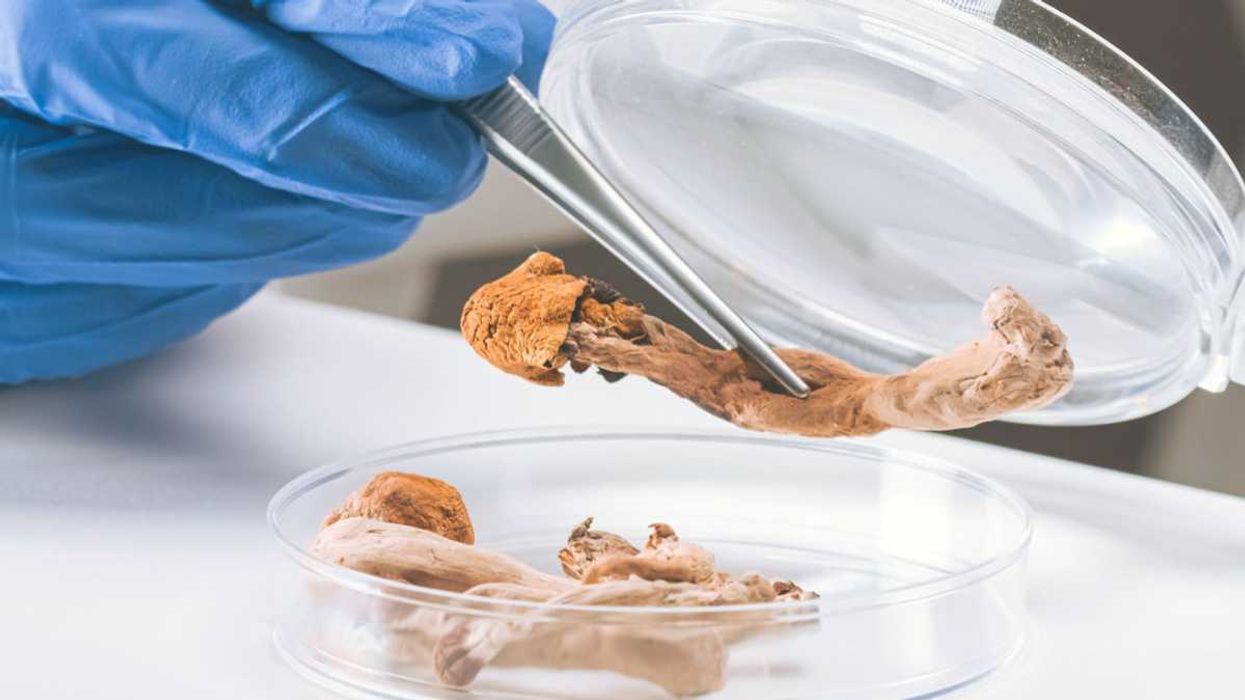Perfectionists get things done, right? They’re more detail-oriented, meticulous, and effective than the rest of us—or so we’ve been led to believe. But new research out of the University of North Carolina at Greensboro, published in the open-access online journal PLOS ONE, has upended that longstanding myth: When put to the test, perfectionists don’t actually work harder than the rest of us. They just agonize more internally about the outcome.
For every deadline achieved, what you don’t see in a perfectionist is the complicated critical self-talk that accompanies his or her every move. Rachel Randall, an editor in Ohio who has identified as a perfectionist for as long as she can remember, says, “Perfectionism is an awareness that everything I do is a reflection of me, not just professionally, but as a person.” While her colleagues and boss likely see only the productive side of her that gets things done, internally, she tells herself, “I beat myself up a lot over simple things. Mistakes that anyone could make.”
[quote position="right" is_quote="true"]I overwhelm myself with the need to have everything just right, creating more work for myself.[/quote]
Negative self-talk is a common behavior of perfectionists, according to psychologist Robin Hornstein, Ph.D., of Philadelphia, who says, “Perfectionists have a drive that is beyond most people’s capacity, including their own.” This naturally leads to beliefs such as, “It can be better than this,” “I am not good enough,” “I cannot make this happen,” and “I am bad.” These kinds of thoughts don’t necessarily lead to working harder than others.
The UNC study bears this out. Based on past research that suggests adaptive perfectionism is associated with higher effort, researchers hypothesized that people who self-described as perfectionists would exhibit increased effort on the task. They recruited 111 college students to take the MPS (Multidimensional Perfectionism Scale) and a self-paced task where they received a small cash reward for each correct answer. The participants were hooked up to an electrocardiogram device to test their cardiac activity as they performed their tasks.
What they found was that those who scored highest for perfectionism did not also demonstrate increased cardiac effort in any category. All participants’ heart rates showed similar levels of effort. While it’s hard to make a concrete assessment of this limited test, it does appear to suggest that underneath the façade of working harder, perfectionists are working neither more efficiently nor harder than others.
Hornstein attributes this to the critical thought processes that perfectionists engage in, which can also lead to procrastination. “There is so much pressure that there may be either periods of lethargy or paralysis or rituals that have to be done to get the work done,” says Hornstein.
Marinda Romesser, a professor in Florida, sees her perfectionism as getting in the way of her work. “I overwhelm myself with the need to have everything just right, and don't seem to realize that I am creating more work for myself than what needs to be there.” After she becomes overwhelmed, she says, “then I have a melt down and I shut down.”
Procrastination is familiar to Laurel H., a Washington-based writer and editor, as well.Though she describes herself as a “tenacious worker bee” whose employers are often sorry to see her leave, “if I’m nervous about a work assignment, I tend to procrastinate until I’m close to missing a deadline. I often obsess over tiny details, so almost everything I do takes longer than it should,” she says.
Oscar Bartos, a graphic designer, feels that he is “half-assing it a lot of the time” because “perfectionism, procrastination, and self-doubt are all intertwined.” This has had a big impact on his career in that he feels he has ended up in jobs “that are design-related but require fairly little creativity.”
Underlying this intense need to get everything right—to make sure that others don’t “see” any signs of their perceived failure—all the perfectionists we interviewed also described suffering from anxiety and/or depression, as well. Hornstein says that may be due to the fact that what drives perfectionists “is not coming from an inflated self-esteem. Rather it emerges from a sense of being ‘less than.’”
[quote position="left" is_quote="true"]Perfectionism, procrastination, and self-doubt are all intertwined.[/quote]
Though there are probably as many sources of perfectionism as there are perfectionists, Hornstein names family stress; a history of failures that are interpreted as a failure of the self, rather than a failed attempt; and trauma and abuse. Each perfectionist may have a different path to healing. All of our interviewees either have had therapy or currently attend some form of therapy, and several have tried medications. Hornstein recommends trying those approaches, as well as any sort of meditation or spiritual practice that is useful—along with simply replacing negative self-talk with more positive. “If your normal go-to is, ‘I suck at this,’ replace it with ‘I can do this,’ or ‘I can try,’” she says.
While there may be no cure for perfectionism, Randall says she reminds herself “that I’m human and I can and will make mistakes.” Romesser is trying a new anxiety medication and using cognitive behavioral therapy to retrain her brain. Bartos has had some success being “creative on the spot” in more spontaneous situations, and Laurel H. concludes, “I’ve accepted that experiencing failure is part of being alive, but the real turning point was realizing that the fear of failure is worse than failure itself.”
















 Volunteers who drive homeless people to shelters talk with a person from Ukraine in Berlin on Jan. 7, 2026.
Volunteers who drive homeless people to shelters talk with a person from Ukraine in Berlin on Jan. 7, 2026.
 Tasks that stretch your brain just beyond its comfort zone, such as knitting and crocheting, can improve cognitive abilities over your lifespan – and doing them in a group setting brings an additional bonus for overall health.
Tasks that stretch your brain just beyond its comfort zone, such as knitting and crocheting, can improve cognitive abilities over your lifespan – and doing them in a group setting brings an additional bonus for overall health. Overdoing any task, whether it be weight training or sitting at the computer for too long, can overtax the muscles as well as the brain.
Overdoing any task, whether it be weight training or sitting at the computer for too long, can overtax the muscles as well as the brain.

 Amoxicillin is a commonly prescribed broad-spectrum antibiotic.
Amoxicillin is a commonly prescribed broad-spectrum antibiotic.  Chart: The Conversation, CC-BY-ND
Chart: The Conversation, CC-BY-ND
 Counterintuitively, social media can make you feel more bored and lonely.
Counterintuitively, social media can make you feel more bored and lonely. Talking about what you’ve read can add a social dimension to what can be a solitary activity.
Talking about what you’ve read can add a social dimension to what can be a solitary activity. 
 Women and people of color who experience cardiac arrest are less likely to receive CPR.
Women and people of color who experience cardiac arrest are less likely to receive CPR.

 Mushrooms containing psilocybin.Photo credit:
Mushrooms containing psilocybin.Photo credit:  Woman undergoing cancer treatments looks out the window.Photo credit:
Woman undergoing cancer treatments looks out the window.Photo credit:  Friend and patient on a walk.Photo credit:
Friend and patient on a walk.Photo credit: